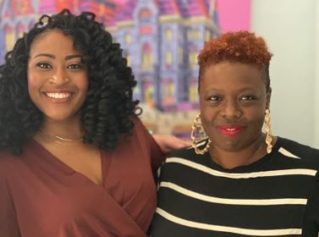Let me paint you a picture. For many of you, it is a picture that will look familiar; a picture that describes the humiliation and fury millions of black women feel on a regular basis all across America.
Your hair is in need of professional attention, so you head to your favorite salon. You get there and you take a seat in the waiting area. And you wait. And you wait. And…
Finally, you’re taken to the shampoo bowl, where you wait some more. Eventually, your hair gets washed and conditioned. And you wait—with a wet head. All the while, you listen to inane conversation not fit for public consumption.
And the music? You might as well be at the local night club.
So much time passes that you become anxious.
You finally are ushered to the dryer, where you sit until the timer goes off. Then you sit and watch client after client go to your stylist’s chair to be serviced. You wonder where you fit in, whether you’ve been bypassed for someone with an appointment after yours.
Now you’re more than just anxious; now you’re angry. Angry and hungry. Just when you’re about to lose it, you get called over to the stylist’s chair. But it’s almost too late. You’re infuriated, disgusted and, above all, disappointed.
By the time you have been styled and stop at the front desk to pay, you’ve been there for six hours.
This is where black hair salons have, for decades, failed black women.
Visiting the salon should be a pleasant, peaceful experience, not an hours-on-end drudgery that leaves you fighting mad—and wondering why you put up with such disrespect of your time.
And yet, this is what millions of black women endure to get our hair professionally done.
It is a failure of gigantic proportions. It is a failure that is sad because black women are failing black women. This has nothing to do with relaxers vs. natural hair. But it has everything to do with respect.
If there is anyone who should be operating with the best interest of black women in mind, it should be other black women. There is not another industry in the world where black women dominate and can set its rules and regulations.
But what we get is blatant disrespect of our time, without any trace of remorse. These places go about business in this ridiculous way, as if that is the way it should be, as if it is all right, acceptable.
Well, it isn’t. But it will not end until we, as women, as clients, demand that our time be respected. We certainly don’t send the right message when we go back the next week and endure it again—only because we like the way that particular person styles our hair. How silly is that?
I know because I did the same silly thing for years. Before I became owner of Like The River The Salon in Atlanta, I was a client, and my stylist would not be there for my scheduled time or she would take a break before styling my hair or gossip on the phone when she finally did service me. And I was foolish enough to take it.
It took a man to snap me out of the madness. He said one day, “You spent how long in the salon? Six hours? Why do you tolerate that?” And that was all it took. I knew there had to be a better way.
After a 16-year corporate career, I followed my passion and pursued a career in hair. In 2008, when I opened Like The River, I opened it with two core principles: community service and customer service.
This is not a self-serving position. I simply did not want to fail other black women. We deserve better, especially from each other. In the hair business, we have the power. We can establish professional standards that make the salon an oasis and not a place of discomfort and frustration.
To break it down, we’ve got to do better. But how, when most stylists never worked in a “real” job where they were required to be on time, dress professionally, conduct business in a respectful manner? They get into hair as a youngster and fall right into the disrespectful habits of those before them—and stay there. Those habits include showing up late or not showing up at all, double and sometimes triple-booking appointments to “get the money” and having an attitude that they are doing the paying customer a favor.
In order to change the culture, the clients have to demand it. Do not put up with the madness. Accepting it only enables the bad behavior. Express your concerns to ownership, threaten to take your business elsewhere. And if there is no change, then find another salon.
I had to issue fines to my stylists for lateness . . . until it became a part of their makeup that they be there waiting for their clients, not the other way around. We do not allow double-booking—that compounds the problem. And we operate on the idea that coming to our salon is a break from work, family, kids, men, and so we create an environment of peace.
The failure of black women by black women has to stop. And, really, it is up to you, the clients, to make it happen.
Najah Aziz is the owner of Like The River The Salon in Atlanta, which has been ranked the No. 1 salon in Atlanta for two straight years—and one of the top 100 salons in America by AOL.com. www.liketheriver.


